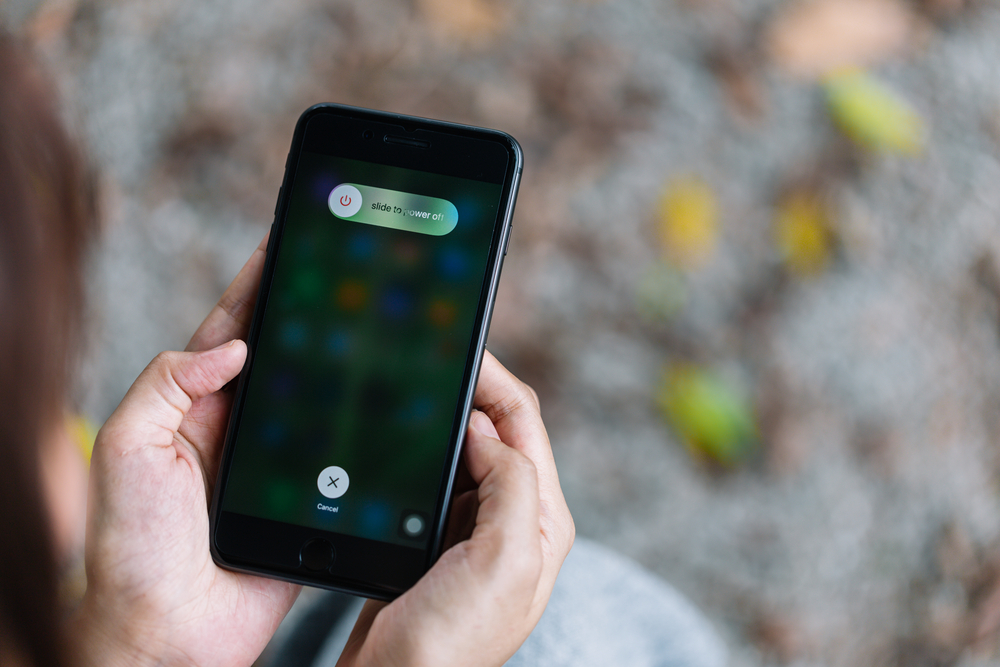Is checking my phone — first thing in the morning — the best way for me to wake up?
Do I really not have time to practice yoga, or is that just an excuse?
With the hustle and bustle of life, I often find myself reacting to what’s happening around me instead of taking a proactive role in creating the life I desire. Now, I try to ask myself daily: how are you taking care of your mind, body, and spirit?
As a result, it’s important to me to constantly reflect on whether my choices are supporting or getting in the way of my bigger mission and vision for my life. I reflect on these choices, whether it’s my phone first thing in the morning or making time to rest and recharge.
Whenever I feel like my behavior is dipping into the not-so-helpful territory — comparing myself to others on Instagram, for example — I know it’s time for a detox.
What is a Mental Health Detox?
Personally, a mental health detox is any type of break from an activity or behavior that is not nurturing my mind, body, and spirit. For example, I know Instagram makes me feel like crap ninety-eight percent of the time. While I need to be on Instagram for my business, I have an ongoing promise to myself that any time I take a vacation, I go on a digital detox. Doing this not only helps me enjoy my vacation and stay in the present moment, but it supports my overall mental health well beyond my time away.
To better understand the power behind mental health detoxes and why they can be so powerful, I consulted an expert, Talkspace therapist Rachel O’Neill, Ph.D. LPCC-S.
Benefits of a detox
According to O’Neill, any time you begin to feel like a process or a relationship has become unmanageable in some way, it can be a good invitation to take a step back. While there are many different mental health detoxes O’Neill supports her clients through, the most common detoxes tend to focus on social media and relationships. “In both of these categories,” O’Neill explained, “individuals tend to find themselves feeling overextended or powerless in the relationship that they have developed with either the person or the process.”
O’Neill finds that, with technology specifically, taking a detox can help you get a realistic picture of how much time you are spending on social media. Once you have this knowledge, then you can decide if you’d like to re-allocate the time to a different activity that is potentially more supportive. As it relates to relationships, O’Neill finds detoxes to be helpful for people who may have conflicting feelings about someone or who needs space to assess how the relationship is impacting their life. Taking a step back from a relationship can be a good way to help you gain perspective on the situation.
The challenges of a detox
Taking a step back from anything that has occupied a lot of time and space in your life can be challenging. “For many,” O’Neill said, “that thing [be it social media, a relationship, an unhealthy habit, etc.] may feel a bit like a comfortable blanket.” For example, you may know that spending hours mindlessly scrolling on social media isn’t great for your health, but, in the moment, it may feel like an okay way to detach, zone out, and destress from a day. Giving that up can feel uncomfortable, new, and frightening for some individuals.
Personally, I have had trouble disconnecting from social media in the past because I was worried I would miss out on something fun or pass up a cool new business opportunity. O’Neill noted that people tend to experience F.O.M.O. (i.e. the fear of missing out) in part because there is a deeper concern others will forget about you if you aren’t present online.
Similarly, it has been difficult for me to cut ties with someone even if I know it’s what would be best for me in the long run. O’Neill points out that removing yourself from a relationship, even if it feels like that’s what you need to do, still represents change and for many people change can feel unfamiliar and uncomfortable.
How to successfully detox
A detox usually feels like an all-or-nothing activity. I either have a glass of wine for happy hour every night or I don’t drink alcohol at all. I either scroll through social media for hours or I don’t engage with it at all. I’m either best friends with someone or I cut ties with them.
O’Neill argues that instead of doing a full all-or-nothing detox, there can be space to just put some limits on a certain activity. “So, instead of fully removing yourself from social media,” she explained, “you can instead focus on taking a more mindful approach to the activity.” One suggestion she had was setting aside 10 to 15 minutes per day to spend on social media and, after that period of time has lapsed, not checking social media for the rest of the day.
O’Neill applies the same philosophy to relationships. “So instead of a fully removing someone from your life,” she said, “simply put boundaries around how much time you’ll allow that person to occupy in your life.”
Breaking an unhealthy habit
One of the first steps in breaking an unhealthy habit is practicing self-love and learning to prioritize your own needs and desires. O’Neill loves the idea of substituting books, podcasts, or Ted Talks in place of mindlessly using social media. She recommends books focused on personal wellness, self-care, and boundary-setting. One of my favorite books on boundary-setting is “Rising Strong” by Brené Brown, PhD LMSW.
Sometimes doing what’s best for your mental health is not easy. It requires tough choices, honest reflection, and getting comfortable with being uncomfortable. But if you can trust in yourself and feel empowered to take the detoxes you need, you will be surprised by what new doors open for you on the other side.
Originally published on Talkspace.
More From Talkspace
Anxiety Attack vs. Panic Attack: Which One Are You Having?
Dealing With Depression: What You Need to Know
What Is a Therapist [Psychotherapist]? – The Complete Definition
Follow us here and subscribe here for all the latest news on how you can keep Thriving.
Stay up to date or catch-up on all our podcasts with Arianna Huffington here.


